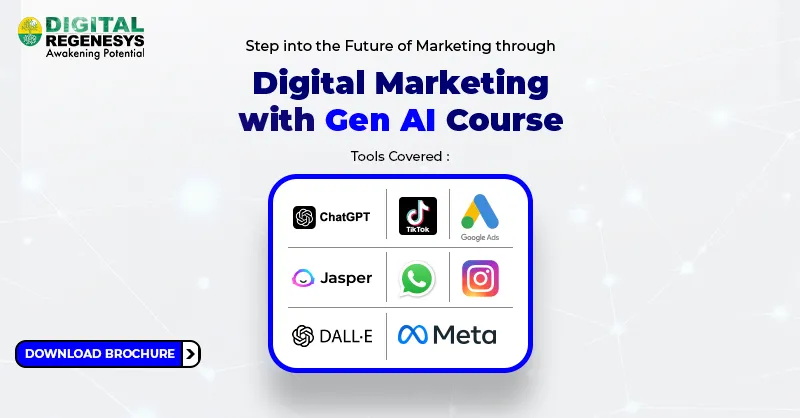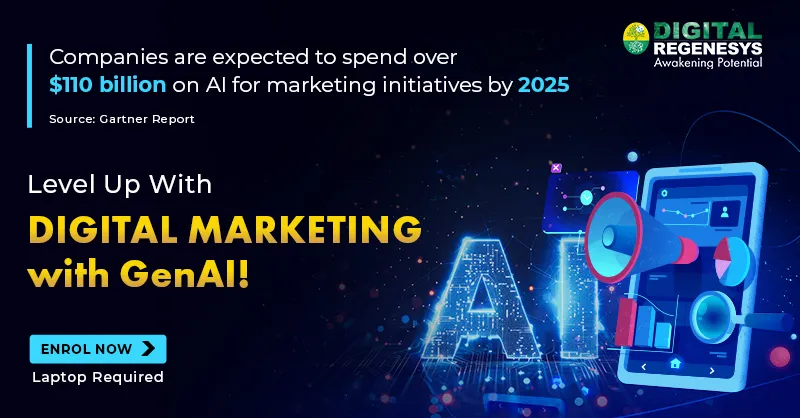What is the Future of Digital Marketing in South Africa?

You may have noticed how quickly everyday life in South Africa is moving online. Whether it’s paying for groceries with a mobile app, scrolling through product reviews before buying, or chatting to a business on social media instead of calling a support line.
These habits are shaping how customers choose who to trust and where to spend their money. That’s why understanding the future of Digital Marketing in South Africa has become so important for any organisation that wants to stay relevant.
As mobile usage grows, e-commerce strengthens, and marketing tools become smarter. Businesses are seeing new ways to reach people more effectively.
At the same time, customer expectations are rising. They want quicker responses, content that feels personally relevant and online experiences that work smoothly across devices.
Marketers who learn to use AI tools responsibly, adjust to privacy changes and respond to genuine South African behaviour will stand out. On the other side, those who don’t will struggle to keep up.
In this article, we will break down the trends shaping the country’s digital landscape, what they mean for businesses in practical terms, and how you can prepare for the years ahead.
Why This Future Matters Now?
Digital habits across the country have evolved faster than many organisations expected. People rely on their phones for information, shopping, entertainment and customer service. This means they judge brands by how smoothly these interactions happen.
If a website loads slowly, if content feels irrelevant, or if support takes too long, customers move on. To keep up, businesses need digital activity that aligns with real behaviour, such as quick responses, clear communication, and content that speaks directly to their needs.
For South African organisations, this transition affects more than marketing teams. A capable digital strategy supports every part of the customer journey, from building trust to completing a purchase and receiving after-sales care.
With more people using smartphones and shopping online, businesses need to strengthen their skills, technology and reporting processes to keep up. This ensures they can understand customers better, personalise experiences responsibly and stay competitive in a market that rewards accuracy and agility.

Key Trends Shaping the Future
South Africa’s online environment is transforming quickly. Brands now depend on clearer data practices, stronger content and faster decision-making. These transformations also influence how teams are structured and which tools marketers rely on. As technology advances, organisations need practical skills and adaptable strategies to keep pace.
Here are the trends that will shape the future of Digital Marketing in South Africa:
1. Mobile-first experiences
Smartphones are the primary internet device for most South Africans. That means websites, ads and creative must be optimised for small screens and low-bandwidth environments. Mobile-first design improves conversion rates and reduces bounce.
Marketers should prioritise fast-loading pages, clear CTAs and mobile payment paths. For campaign planning, mobile behaviour should drive channel choice, timing and creative format decisions rather than being an afterthought.
2. AI and automation in marketing
AI will power better personalisation, predictive targeting and content experimentation. Routine tasks, i.e. audience segmentation, bidding, and initial creative testing, are increasingly automated.
This frees marketers to focus on strategy, creative direction and ethical oversight. Skilled practitioners will need to understand how AI models make recommendations and how to validate results. The best teams will combine human judgment with AI speed to improve ROI and customer experience.
3. E-commerce and integrated funnels
Online shopping is growing rapidly. The future underscores end-to-end funnels in which discovery, social commerce, checkout, and fulfilment are tightly linked. Brands must close the loop between paid media, organic content and on-site conversion.
This requires solid tracking, clear attribution and close ties between marketing and operations. Expect more investment in conversion rate optimisation, local payment options and logistics partnerships to reduce friction for customers.
4. Short-form video and creator partnerships
Short, authentic video drives engagement and discovery across platforms. Local creators and micro-influencers deliver relevance at scale for niche audiences. Successful campaigns focus on storytelling that fits the platform and audience expectations.
Brands should test creator-led pilots, measure on-view and post-view actions, and invest in creative briefs that allow creators to keep authenticity. This approach builds trust and discovery simultaneously.
5. Privacy, regulation and first-party data
Regulations such as POPIA and evolving privacy norms mean marketers must rely less on third-party tracking and more on consented, first-party data. This shift requires transparent collection practices, better customer value exchange and more sophisticated CRM strategies.
Marketers who build trusted relationships and clear opt-in benefits will retain measurement and targeting capabilities while staying compliant. Ethical data use will become a competitive advantage.
For more information, read this: Top 10 Digital Marketing Trends for 2026

Opportunities and Challenges for South Africa
The pace of progress in South Africa’s digital landscape depends on how well businesses respond to changing customer habits and technology shifts. Gaps in infrastructure, skills and access present real barriers that organisations must plan for rather than overlook.
Below are the major opportunities and challenges shaping South Africa’s digital future:
Opportunities
- SMEs can compete online with low-cost channels and precise targeting.
- New roles in analytics, performance marketing and content production will expand.
- Localised campaigns and commerce solutions open up underserved markets.
Challenges
- A digital skills gap makes hiring a bottleneck; ongoing training is critical.
- Logistics and payments infrastructure need improvements in some regions.
- The digital divide means inclusive strategies are essential for nationwide reach.
These realities make the Digital Marketing growth in South Africa both promising and conditional on investment in skills and infrastructure.
Skills Marketers Will Need
Posting content on its own no longer drives meaningful growth or helps brands stand out. Teams will require stronger analytical thinking, quicker creative production and an understanding of how tools like AI fit into daily workflows.
Below are the key areas shaping the next generation of digital talent:
- Data literacy and measurement – to tie activity to revenue.
- Paid-media optimisation – especially programmatic and social ads.
- Content production – short video editing and storytelling.
- Customer experience design – from landing pages to checkout.
- AI oversight – interpretive skills to validate automated outputs.
Read More: How to Become a Successful Digital Marketer? Know Essential Skills, Steps, and Career Insights!

How Businesses Should Prepare?
To remain competitive in the market, organisations need practical steps rather than broad ideas. Preparing for the future involves improving technical performance, building stronger teams and adopting tools that support accuracy and efficiency. Below are practical measures businesses can begin implementing now:
- Build small cross-functional teams that include analytics and creative specialists.
- Prioritise mobile UX improvements and faster page loads.
- Adopt privacy-first measurement tools and cultivate first-party data.
- Pilot AI tools for ordinary tasks while training staff to supervise results.
- Invest in local creators and community outreach to improve relevance.
These measures help translate strategy into measurable outcomes while managing risk.
The Role of Training – Why Digital Regenesys Matters?
Employers want marketers who understand tools, can manage campaigns and analyse performance without lengthy onboarding. This is where structured digital learning becomes essential. Digital Regenesys’ Digital Marketing course with Gen AI provides practical training that aligns with the skills South African businesses expect in a modern digital role.
Digital Regenesys helps learners by offering:
- Campaign setup skills – Training on how to build, adjust and manage digital campaigns across key platforms.
- Analytics and measurement – Understanding data, reviewing performance, and linking marketing activity to business results.
- Creative writing and content briefs – Learning to produce clear social copy, video ideas and platform-ready concepts.
- Short-form video practice – Hands-on guidance for creating mobile-friendly videos that meet today’s engagement standards.
- Portfolio-building assignments – Real tasks that students can use in interviews to demonstrate applied knowledge.
Read More: Best Digital Marketing Online Course in South Africa

South Africa’s Digital Marketing Outlook
The market is moving toward stronger analytics, improved customer journeys and AI-supported creativity. Businesses that prepare early will be in a stronger position to compete, especially as regulations and consumer expectations mature. The overall direction remains positive, driven by technology and a digitally active population.
What the future is expected to look like:
- More personalised campaigns – Brands using first-party data to alter messages and build customer loyalty.
- Mobile-centric strategies – Content and ads designed primarily for smartphone users.
- AI-assisted workflows – Faster content production, predictive insights and automated support tools.
- Higher demand for digital talent – Especially in analytics, video content, paid media and customer experience.
- Greater focus on trust and ethics – Businesses adopting responsible data practices as privacy rules tighten.
Conclusion
The future of Digital Marketing in South Africa offers opportunities for those who learn quickly and focus on measurable outcomes. If you want practical, job-ready skills, consider Digital Regenesys’ Digital Marketing course with Gen AI to build the tools employers need.
As organisations continue to rely on data-driven decisions and customer-focused campaigns, professionals who understand the foundations of modern marketing will remain in demand. With the right training, you can build the confidence to contribute meaningfully to real business goals.
Start your digital marketing journey with confidence! Enrol today with Digital Regenesys.
Last Updated: 6 February 2026